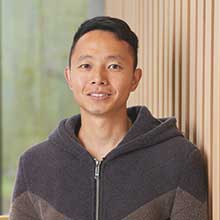Bing Liu
Postdoctoral researcher
Profile
Biography
In April 2024, Bing started a postdoctoral job in Andreas Heinemeyer's peat team, contributing to an ongoing long-term peatland research project Peatland-ES-UK, which assesses the impacts of vegetation management in UK upland heather-dominated peatlands on biodiversity, water quality and carbon dynamics. In this role, Bing mainly focuses on supporting seasonal field monitoring (carbon emissions), doing data analyses and writing papers.
Bing was a previous SEI York PhD student who had worked with Andreas' peat team for four years (2019-2023). During his PhD study, Bing investigated the potential of testate amoebae as bioindicators in indicating UK blanket bog hydrological recovery conditions following heather management (i.e., prescribed burning, cutting and uncut) and active restoration strategies (e.g., ditch/gully-blocking, revegetation). At the same time, Bing joined a range of fieldwork including carbon fluxes measurement, vegetation investigation, peat/water/heather samples collection.
Before the start of his PhD, Bing worked in Chengdu Institute of Biology, Chinese Academy of Sciences as a research assistant for half year. During this period, he joined a forest-related project, which investigates how forest secondary succession affects soil physiochemical properties, microbial communities (e.g., microbes, protists, nematodes) and their interactions with plant communities. Prior to this, Bing completed his undergraduate and master’s studies in China during which he had a six-month experience to study at Leigh University, USA as a visiting student in 2017.

